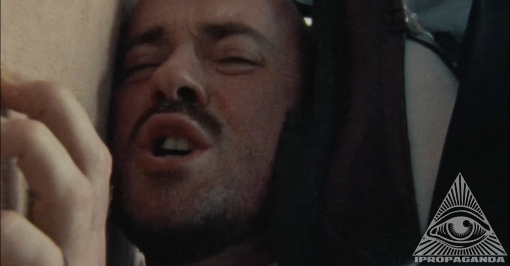
A Quiet Storm About Fame, Boundaries, and Belonging
Introduction
A song about wanting less in a world that wants more On “You Don’t Even Need It,” a cut from Burn The Right Things Down (released October 18, 2024), Maverick Sabre turns restraint into a kind of rebellion. The hook circles a simple impulse—don’t chase the high, don’t overheat the moment—and the verses prod at identity, performance, and the mirage of stardom. It’s a track that asks whether wanting something is the same as needing it, and whether the chase is erasing the person doing the chasing.
A house besieged: Grajper’s domestic thriller
Grajper, whose full name is Krzysztof Grajper, is a Warsaw-based Polish director known for his visually experimental and emotionally resonant music videos and commercials, often blending contemporary storytelling with striking multimedia forms. He’s garnered recognition with awards like Best Music Video at the 2020 EnergaCamerimage Film Festival and a UK Music Video Award nomination in 2024. Director Grajper translates those questions into a tense, deceptively simple scenario. Sabre occupies a suburban home, a place that should promise privacy. Instead, faces press against the glass. Strangers study his smallest gestures, fogging the windows with their breath and curiosity. The threshold gives way: the crowd pours inside, rifling through space and self with a fan’s entitlement disguised as affection.
What’s chilling isn’t chaos; it’s composure. Sabre wears the invasion with an almost ceremonial calm, a choice that reframes the sequence from horror to ritual. Fame, the video suggests, isn’t a sudden explosion—it’s the daily abrasion of being watched until your edges go smooth.
The metaphor that doesn’t overexplain itself
Artists have lately spoken about the blurry line between passion and possession in fan culture. This video takes that conversation and boils it down to one image: a home that no longer belongs to its inhabitant. The point isn’t scold-y; there’s no wagging finger. Instead, Grajper trusts a viewer’s intuition. We understand the trespass because we know what a closed door means, and we recognize the ache of being treated like an object rather than a person.
A miniature inferno, a big idea
Midway through, a model of Sabre’s house ignites. It’s a fleeting, striking effect—both toy-like and terrifying. The burn reads as two things at once: the fantasy of destroying the spectacle, and the reality that the spectacle might consume you first. Miniatures let us control scale; fire reminds us who’s really in charge.
Understatement as style: edit, grade, performance
The craft stays deliberately gentle. Cuts glide rather than punch; the color leans natural, like late afternoon light. That softness keeps the imagery from slipping into self-importance. It also creates a useful friction: intrusive behavior plays out in a palette more suited to a family drama than a thriller. The result is a video that feels lived-in even while it’s being torn open.
Sabre’s performance sits at the center of that quiet. No flailing, no theatrics—just a watchful presence that makes the surrounding frenzy feel louder. When the camera lingers, the stillness becomes its own kind of action.
Lyric echoes: the glamour and the cliff edge
The song’s repeated refusal to “get too high” pairs neatly with the video’s refusal to escalate for the sake of it. Lines that flirt with stardom—movie lights, the lure of the spotlight—land differently when the frame is filled with hands on windows. Ambition isn’t condemned; it’s interrogated. What’s the cost of wanting to be seen if being seen never ends?
Mental health, regret, and the pressure to be new
Threaded through the piece is a quieter theme: the self you were vs. the self an audience demands. The urge to “be someone new” can be creative fuel, but it can also be a performance of survival—masking worry, sanding off vulnerability. The video’s house becomes a mind: rooms you used to rest in are now rooms you perform in. That displacement hums with anxiety and, yes, a little regret.
Grajper’s signature without the signature move
If you’ve followed Grajper’s recent work—including a UKMVA-recognized outing—there’s a familiar confidence in mixing austere setups with vivid, one-shot images that brand the memory. But nothing here leans on a gimmick. The style serves the subject: precise, unfussy, emotionally legible.
Where it sits in Sabre’s catalogue
Maverick Sabre has long balanced grit with grace—live-wire vocals paired with writing that keeps its feet on the ground. “You Don’t Even Need It” continues that arc, but narrows the lens. Rather than a broad social panorama, we get a single home, a single day, a single boundary crossed. The scale is smaller; the resonance is not.
The takeaway: a boundary drawn in a whisper
What lingers after the final frame isn’t the crowd or the flames. It’s the insistence—musical and visual—that enough can be enough. In a culture that treats appetite as virtue, Sabre and Grajper propose the opposite: sometimes the bravest thing is to step back from the edge, close the door, and keep what’s inside yours.
